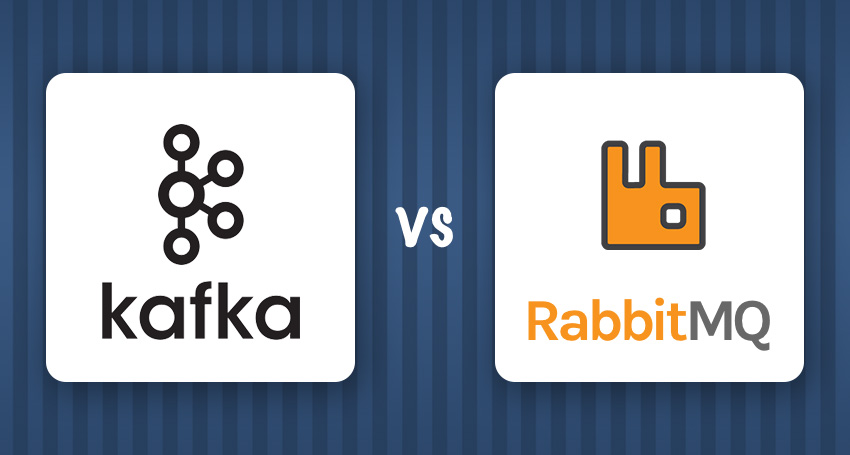The Importance of Messaging Queues: Exploring RabbitMQ, Kafka, and JMS
 Eduardo Oliveira
Eduardo Oliveira
In the landscape of modern software architecture, messaging queues are crucial for ensuring efficient communication and task management across distributed systems. Tools like RabbitMQ, Apache Kafka, and Java Message Service (JMS) offer robust solutions for handling messaging needs, but they cater to different requirements and scenarios. This article delves into the importance of messaging queues, comparing RabbitMQ and Kafka, and highlighting how these tools contribute to building scalable and resilient systems.
1. The Role of Messaging Queues
Messaging queues are middleware systems that enable asynchronous communication between various system components. They function as intermediaries that store and manage messages sent from producers until they are processed by consumers. The significance of messaging queues includes:
Decoupling Components
By utilizing messaging queues, systems achieve a high degree of decoupling between services. This separation allows producers and consumers to operate independently without being aware of each other’s state or availability. For instance, a web application can send messages related to user activities to a queue, which are then processed by backend services independently. This decoupling simplifies development, testing, and scaling of individual components.
Handling Variable Load
Messaging queues manage variable loads efficiently by absorbing message surges and ensuring they are processed in an orderly manner as resources become available. This buffering capability helps prevent system overloads and ensures a smooth user experience during peak traffic periods.
Ensuring Resilience
Messaging queues enhance system resilience by ensuring that messages are not lost during failures. Messages remain in the queue until they are successfully processed, increasing the robustness of the system and avoiding the loss of critical data in case of component failures.
2. Overview of Key Messaging Tools
RabbitMQ: Flexibility and Ease of Use
RabbitMQ is a widely used message broker that supports the AMQP (Advanced Message Queuing Protocol). Its key features include:
Multiple Protocol Support: RabbitMQ supports various messaging protocols, including AMQP, MQTT, and STOMP, allowing integration with diverse systems.
Rich Routing Capabilities: It uses an exchange and queue-based model for routing messages, offering flexibility in message distribution.
Management and Monitoring: RabbitMQ provides an intuitive web-based management interface for monitoring and managing the system.
RabbitMQ excels in scenarios requiring flexible protocol support and sophisticated routing, such as integrating various applications and services.
Apache Kafka: Scalability and Stream Processing
Apache Kafka is a distributed event streaming platform designed for high-throughput and real-time data processing. Its key features include:
High Throughput and Scalability: Kafka handles high data volumes with low latency, and its distributed architecture allows for horizontal scaling.
Durable Storage: Messages are stored in distributed logs and replicated across brokers, ensuring data durability and availability.
Real-Time Stream Processing: Kafka supports real-time data processing, making it suitable for analytics and event-driven architectures.
Kafka is ideal for handling large-scale data streams, real-time analytics, and data integration.
JMS (Java Message Service): Integration and Compatibility
JMS is a messaging standard for Java applications that provides a consistent API for messaging within the Java ecosystem. Its key aspects include:
Standardized Messaging API: JMS offers a standard API, facilitating integration across different Java-based applications and messaging systems.
Versatile Messaging Models: It supports point-to-point (Queue) and publish/subscribe (Topic) messaging models, providing flexibility in communication patterns.
Integration with Java EE Servers: JMS integrates seamlessly with Java EE servers, enhancing enterprise application development.
JMS is suited for Java applications requiring a standardized messaging solution and integration with enterprise systems.
3. Comparing Kafka and RabbitMQ
While both Kafka and RabbitMQ are powerful messaging systems, they have different design philosophies and strengths. Here’s a comparison of the two:
Architecture and Design
Kafka: Kafka is a distributed log system optimized for high throughput and real-time data processing. It uses partitioned topics and replicated logs to achieve scalability and durability.
RabbitMQ: RabbitMQ is a traditional message broker with a queue-based storage system and support for various routing patterns. It can be deployed as a single broker or in a cluster for enhanced availability.
Performance and Throughput
Kafka: Kafka is designed for high throughput and low latency, handling millions of messages per second and providing real-time processing capabilities.
RabbitMQ: RabbitMQ manages moderate throughput and may exhibit higher latency compared to Kafka, particularly under heavy load due to its message broker architecture.
Scalability and Reliability
Kafka: Kafka scales horizontally by adding brokers and partitions and offers robust fault tolerance through replication. Its distributed nature supports large-scale data volumes and high availability.
RabbitMQ: RabbitMQ scales vertically and through clustering. While clustering enhances availability, it may introduce complexity and is generally less scalable compared to Kafka’s distributed design.
Use Cases
Kafka: Best suited for real-time data processing, large-scale data streaming, and data integration scenarios where high throughput and durability are critical.
RabbitMQ: Ideal for message routing, enterprise application integration, and task queuing where complex routing and reliable message delivery are required.
Operational Considerations
Kafka: Requires careful management of topics, partitions, and replication, with a focus on distributed cluster management and monitoring.
RabbitMQ: Generally easier to set up and manage, especially in smaller or less complex environments, with a user-friendly management interface.
Conclusion
Messaging queues are essential for managing communication and data flow in modern software systems. Tools like RabbitMQ, Apache Kafka, and JMS each offer unique capabilities and benefits. RabbitMQ excels in flexibility and routing for various messaging scenarios, Kafka provides high throughput and real-time processing for large-scale data streams, and JMS offers standardized messaging solutions within the Java ecosystem. Understanding the strengths and use cases of each tool will help you make informed decisions and leverage the right messaging solution for your system’s needs, ensuring efficient and resilient system architecture.
Subscribe to my newsletter
Read articles from Eduardo Oliveira directly inside your inbox. Subscribe to the newsletter, and don't miss out.
Written by

Eduardo Oliveira
Eduardo Oliveira
👋 Hello, I'm an enthusiast passionate about innovation and software development, with over 3 years of experience in this fascinating universe. I firmly believe in Walt Disney's quote: "It's fun to do the impossible because the competition is less there." 💻 Technical Experience: Throughout my career, I've had the opportunity to work with challenging clients and projects, using Java 8, 11, and 17, Vue.js 2, Vue.js 2.7, and Vue.js 3, along with frameworks like Vuetify and Quasar. My journey includes developing web and mobile projects, being an enthusiast of React and React Native technologies. 🚀 Software Engineering Consultant: Currently, I work as a Software Engineering in Europe, leading teams and providing innovative solutions for constantly evolving technological challenges. 🌐 DevOps Culture and the Future of Technology: I've dedicated myself to spreading the DevOps culture, as I believe it is the future of the industry. Where the future is, I make it my present, always seeking new challenges and learning opportunities. 🌐 Excellence in Financial Sector Development: In my role as a Developer, I've played a strategic part in significant projects, including the development of a corporate ERP for a prominent financial institution. My involvement spanned from complex business rule definitions to effective implementation, providing me with a profound understanding of the dynamics and challenges inherent in the financial sector. Additionally, leading my consultancy allowed me to serve esteemed clients, excelling in projects for market-leading companies. These enriching experiences not only solidified my technical knowledge but also enhanced my ability to comprehend the intricate demands of the financial sector. Committed to innovation and excellence, I've turned challenges into opportunities, translating the complexities of the financial environment into sophisticated and effective software solutions. My journey is characterized by a continuous pursuit of excellence and the practical application of in-depth knowledge in developing solutions that propel the advancement of the financial sector. 🚀💻 📧 Contact: I'm always open to new connections and conversations! Feel free to reach out to me via email (eduardo.ribeiro.oliveira23@gmail.com). I'm comfortable conversing in both Portuguese and English. Let's connect and explore new opportunities together! 🚀